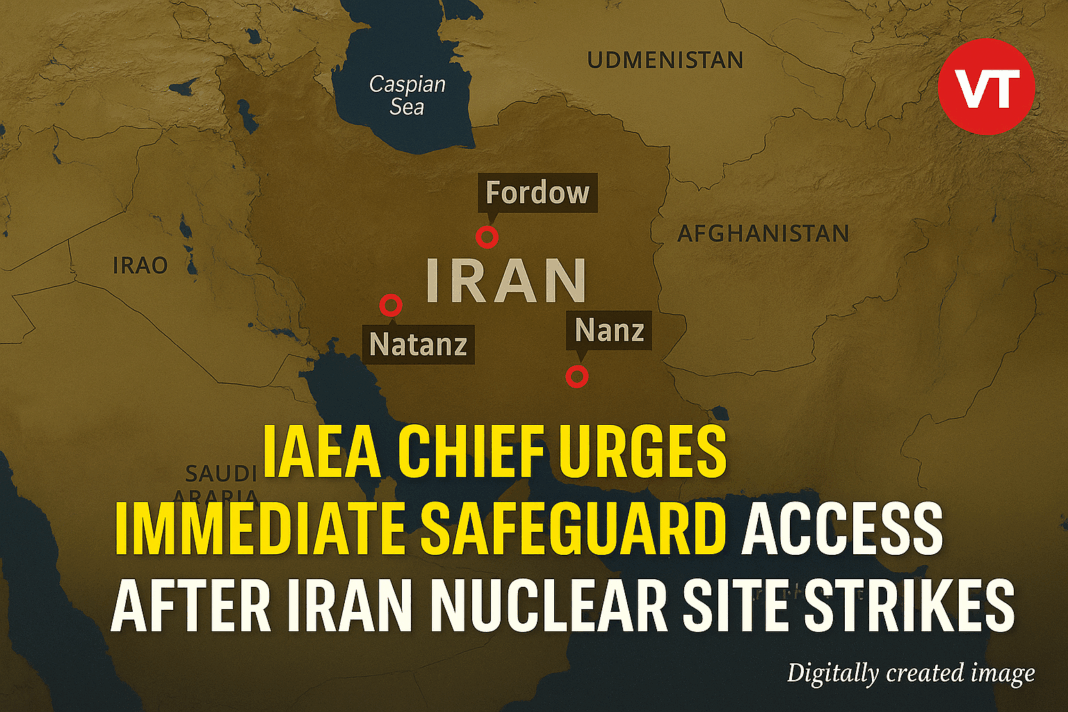New satellite images reveal deeper impact of U.S. and Israeli strikes; no off-site radiation detected
- IAEA confirms extensive damage at Fordow and Natanz nuclear sites in Iran.
- Inspectors ready to resume safeguards verification, pending Iran’s cooperation.
- No reported radiological impact to neighboring countries, Grossi assures.
- Localized contamination likely at underground enrichment halls.
- IAEA urges diplomatic cooperation to resolve nuclear verification gaps.
The International Atomic Energy Agency (IAEA) has confirmed through satellite imagery and preliminary inspections that Iranian nuclear facilities at Fordow and Natanz have sustained “extensive damage,” following a 12-day military conflict involving U.S. and Israeli strikes.
IAEA Director General Rafael Mariano Grossi announced Tuesday that inspectors are prepared to resume safeguards verification immediately and emphasized the urgency of renewed cooperation with Tehran.
According to the IAEA’s official statement, the Agency has remained engaged with Iran’s Nuclear Regulatory Authority and continues monitoring potential human and environmental effects. Inspectors verified over 400 kg of uranium enriched to 60% prior to the attacks.
Localized Chemical Releases Detected
Grossi confirmed that several impact points were observed in the Fordow and Natanz facilities, including direct hits on access roads, underground entrances, and storage halls. These likely caused “localized contamination and chemical hazards,” but no radiation has been detected beyond the sites.
Grossi reiterated that nuclear facilities should “never be attacked” due to the global risks involved. Despite the high level of destruction, Iran’s research and power reactors were reportedly not targeted in the strikes.
Next Steps: Diplomacy and Inspection
Grossi has written to Iran’s Foreign Minister Dr. Abbas Araghchi proposing a direct meeting. He stressed that resuming safeguards inspections is vital to rebuilding international trust and maintaining transparency in Iran’s nuclear program.
The IAEA Board of Governors was briefed Monday on the broader impact. Inspectors are now awaiting formal access to begin inventory checks at damaged facilities.
Read More:
A global media for the latest news, entertainment, music fashion, and more.














